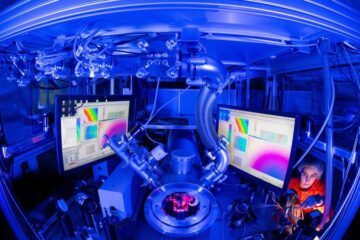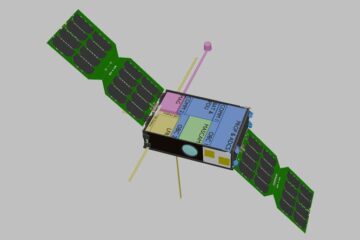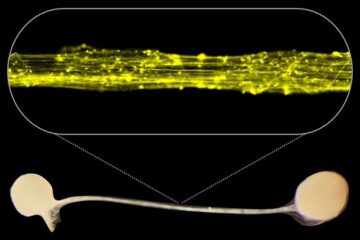Linheng Li Lab documents the development of cancer stem cells

The paper, “PTEN-deficient intestinal stem cells initiate intestinal polyposis” was posted to the Nature Genetics Web site on January 21.
The theory that cancer stem cells initiate and drive cancer cell growth has been gaining popularity in both clinical and basic research. Recent studies have identified cancer stem cells and shown that they may cause tumors when transplanted into a secondary host. Until now, however, little was known about the process by which mutations in a stem cell result in primary tumor initiation.
The Li Lab team studied the intestinal system in mice in which one of the human tumor suppressor genes, PTEN, had been deleted. They found that the PTEN/Akt pathway likely regulates stem cell activation by helping control nuclear localization of beta-catenin, the Wnt pathway effector, through phosphorylation of beta-catenin — including Serine552.
“We found that a loss of PTEN in intestinal epithelial cells accompanied by a loss of PTEN in stromal cells can lead to changes that may increase the number of stem cells and change their position or location,” said Dr. Li. “These changes result in crypt fission and budding and can lead to intestinal polyposis and uncontrolled tumor growth.”
“All of us were very excited to be part of these efforts to reveal basic features of cancer stem cells,” said Dr. He. “What we learned — that cancer stem cells are a rare population in the tumor mass; that they are slow cycling but more active than normal stem cells; and that cancer stem cells and stromal insertions initiate the process of primary tumorigenesis — will be influential in our future work.”
“Findings from the Li Lab create opportunities to further characterize cancer stem cells and to obtain their molecular signature — providing important insight into targeting these cells,” said Robb Krumlauf, Ph.D., Scientific Director. “This is a fascinating new area of cancer research, and Linheng Li and his colleagues will continue to make important contributions.”
Media Contact
More Information:
http://www.stowers-institute.orgAll latest news from the category: Life Sciences and Chemistry
Articles and reports from the Life Sciences and chemistry area deal with applied and basic research into modern biology, chemistry and human medicine.
Valuable information can be found on a range of life sciences fields including bacteriology, biochemistry, bionics, bioinformatics, biophysics, biotechnology, genetics, geobotany, human biology, marine biology, microbiology, molecular biology, cellular biology, zoology, bioinorganic chemistry, microchemistry and environmental chemistry.
Newest articles

Caution, hot surface!
An international research team from the University of Jena and the Helmholtz Institute Jena are demystifying the mechanisms by which high-intensity laser pulses produce plasma on the surface of solids….

Exploring the Asteroid Apophis With Small Satellites
In five years’ time, a large asteroid will fly very close to Earth – a unique opportunity to study it. Concepts for a national German small satellite mission are being…

First model of the brain’s information highways developed
Our human brain is not only bigger and contains more neurons than the brains of other species, but it is also connected in a special pattern: Thick bundles of neurons…





















